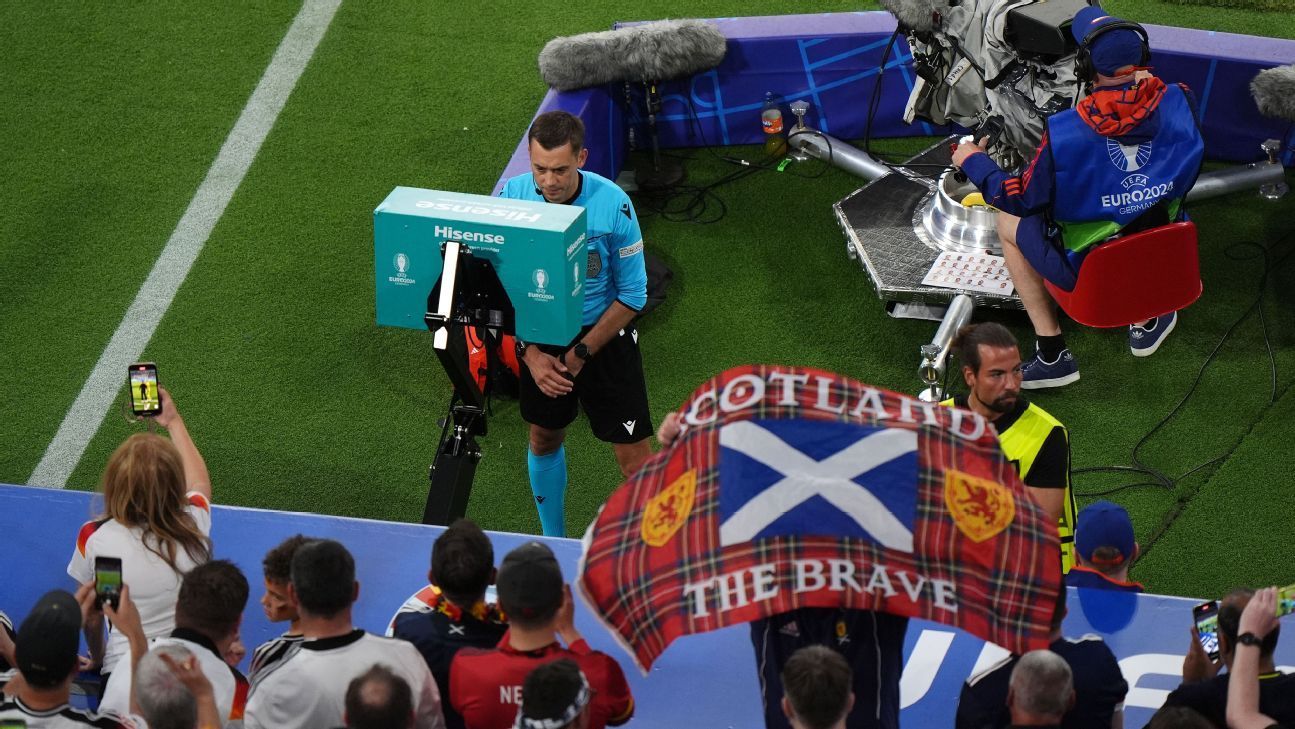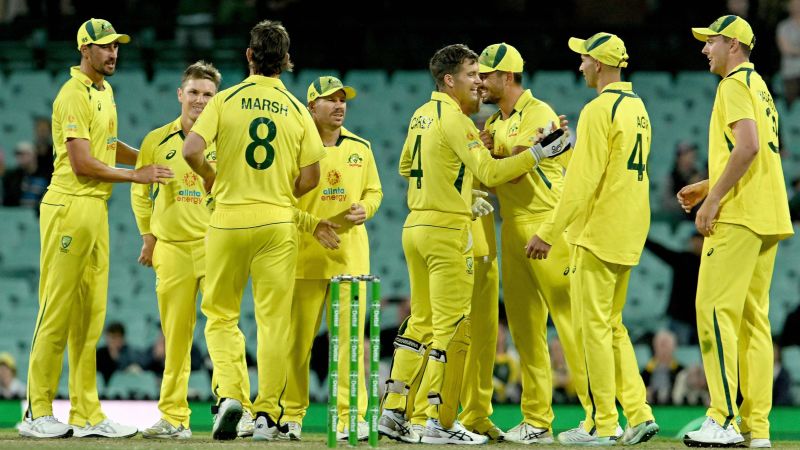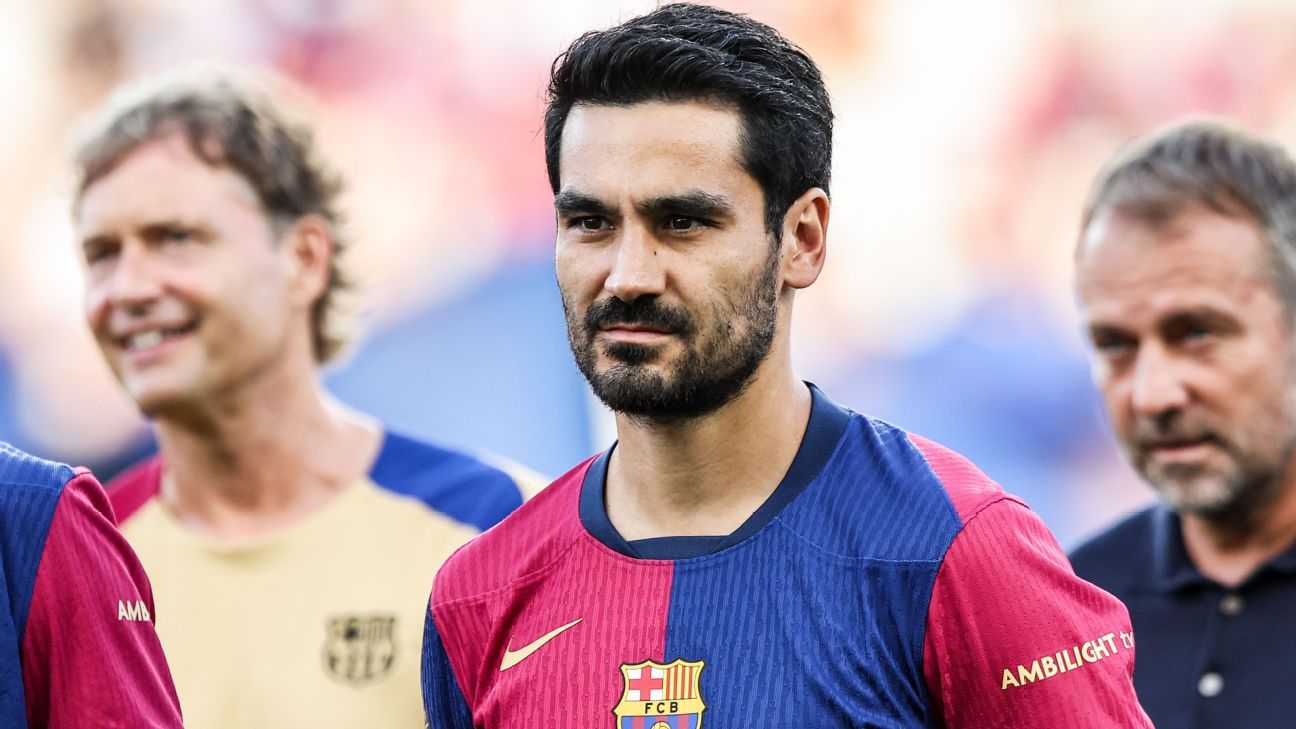We are analyzing every VAR decision made throughout the 51 matches of Euro 2024.
After each match, we review the main incidents to examine and explain the process both from the point of view of the VAR protocol and the Laws of the Game.
Total cancellations: 4
Rejected cancellations: 0
Driving goals: 2
Leading to disallowed goals: 1
Penalties imposed: 1 (0 lost)
~ to hold: 0
~ for handball: 0
Penalties waived: 1
Penalty replays: 0
Penalties rejected: 0
Goals disallowed due to offside: 1
Goals after incorrect offside: 1
Red cards: 1
Possible annulment of VAR: Penalty for foul by Christie on Musiala
What happened: Referee Clément Turpin awarded a penalty for the hosts in the 25th minute for a foul by Ryan Christie on Jamal Musiala on the edge of the area. The VAR, Jérôme Brisard, went into action to verify the decision.
VAR decision: Penalty annulled.
VAR review: It is the point of contact of the foul that determines where the infringement occurred, so an attacker can have part of his body inside the area and not receive a penalty.
Although there was also contact from Kieran Tierney on Musiala's left foot, who was inside the area, the referee had awarded it due to Christie's tackle on the German striker's right foot, who was outside the area.
It was quick and efficient for VAR to tell Turpin to change his decision to a free kick. The referee did not have to go to the monitor for this as it was a position based decision. If the VAR was questioning the foul, that would have been subjective and the referee would have to commit it.
It was also the first time that fans in the stadium received the same information that is offered to broadcasters, and the reason for the VAR decision was shown on the big screen. However, unlike other competitions, UEFA has decided that a referee will not announce it over the public address system.
Possible penalty and red card: Porteous foul on Gündogan
What happened: The game was in the 42nd minute when, after a scramble just outside the six-yard box, Ryan Porteous tried to close down Ílkay Gündogan before he could shoot. Porteous collided with the Germany captain but referee Turpin dismissed the penalty claims. As soon as the ball came out it was clear that Gündogan needed treatment and the VAR began a check.
VAR decision: Penalty, scored by Kai Havertz, and red card for Porteous.
VAR review: Before the tournament began, chief referee Roberto Rosetti said he expected a zero-tolerance attitude towards challenges of this nature, which should be judged as serious foul play.
This is one of the more extreme examples, as Porteous came off the ground with both feet and caught Gündogan above the ankle.
Any tackle where a player slides, dives or jumps and makes contact over the boot will likely lead to a VAR review if the referee has not made the correct decision to show a red card on the field.
This is something of a double whammy for Turpin, of course, as he couldn't identify the penalty foul, let alone the red card.
Possible offside: Füllkrug before scoring
What happened: Niclas Füllkrug added the fifth goal for Germany in the 76th minute, when he finished from close range after a cross from Thomas Müller. But a VAR review was necessary.
VAR decision: Offside.
VAR review: It was our first experience with semi-automatic offside at Euro 2024, and it was a quick and fluid process. However, it was a clear offside in which two players were very close to each other. We will surely see other decisions that will take longer with this new offside technology, which will be introduced in the Premier League next season.
In fact, controlling Scotland's consolation goal in the 87th minute, when Antonio Rüdiger deflected the ball into his own goal, took much longer. Connected ball technology can tell VAR when the ball has been played and if another player is offside, but it cannot detect which player has played the ball. Then, when the ball was headed, coincidentally, by Germany's Füllkrug in a defensive position, Scotland's Lawrence Shankland was offside but did not interfere with play. Therefore, the VAR must verify that there is no offside against the player indicated by the technology.
Possible side: Duah when scoring
What happened: Kwadwo Duah thought he had given Switzerland the lead in the 12th minute, racing through the middle to score off a pass from Michel Aebischer. However, the assistant raised his flag for offside as soon as the ball went into the back of the net.
VAR decision: Goal
VAR review: After a semi-automatic offside was used to disallow Germany's goal against Scotland, an error was corrected this time to disallow one when Hungarian defender Milos Kerkez was behind Duah.
55 seconds passed from the time the ball entered the back of the net until the referee signaled the goal. That seems pretty long, as Duah clearly seemed to be in play from the first repetition. But this technology is still in its infancy and VAR will not immediately rely on it if no offside is detected. At least in these early stages, every decision must be verified, although it is much quicker as the VAR has no manual role in determining the players' positions relative to each other.












